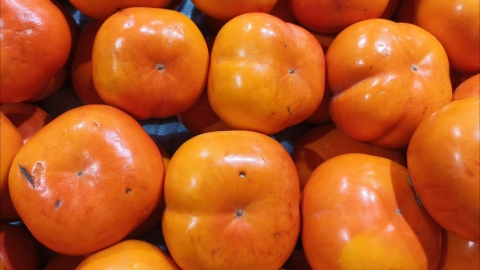Can leeks and persimmons be eaten together?
Generally speaking, leek and persimmon can be eaten together, but moderation is necessary when consuming them. Detailed analysis is as follows:

Leek is rich in vitamin C, dietary fiber, and minerals, while persimmon contains abundant beta-carotene, vitamin C, and tannic acid. When consumed together, they can fulfill various nutritional needs of the body and generally will not cause significant adverse reactions under normal circumstances.
However, it's also important to control the amount consumed when eating leek and persimmon. Long-term or excessive simultaneous consumption of persimmon and leek may lead to the formation of gastric stones. Gastric stones can continuously irritate the gastric mucosa, causing gastric mucosal damage, abdominal pain, diarrhea, and seriously affect the normal functions of the gastrointestinal tract and its ability to digest and absorb nutrients.
To ensure food safety, it is recommended to consume fully ripe persimmons in order to reduce tannic acid content. At the same time, avoid consuming large amounts of persimmon on an empty stomach. In daily life, attention should be paid to reasonable food combinations and avoiding eating incompatible foods together.





